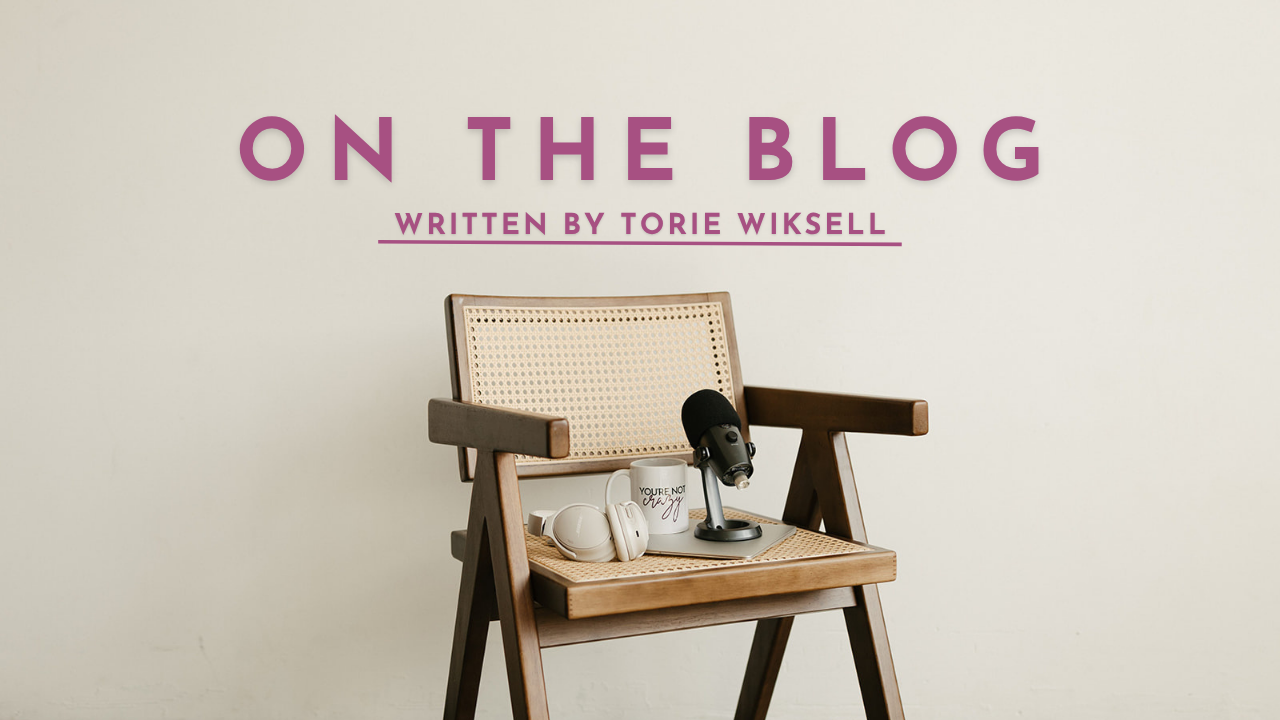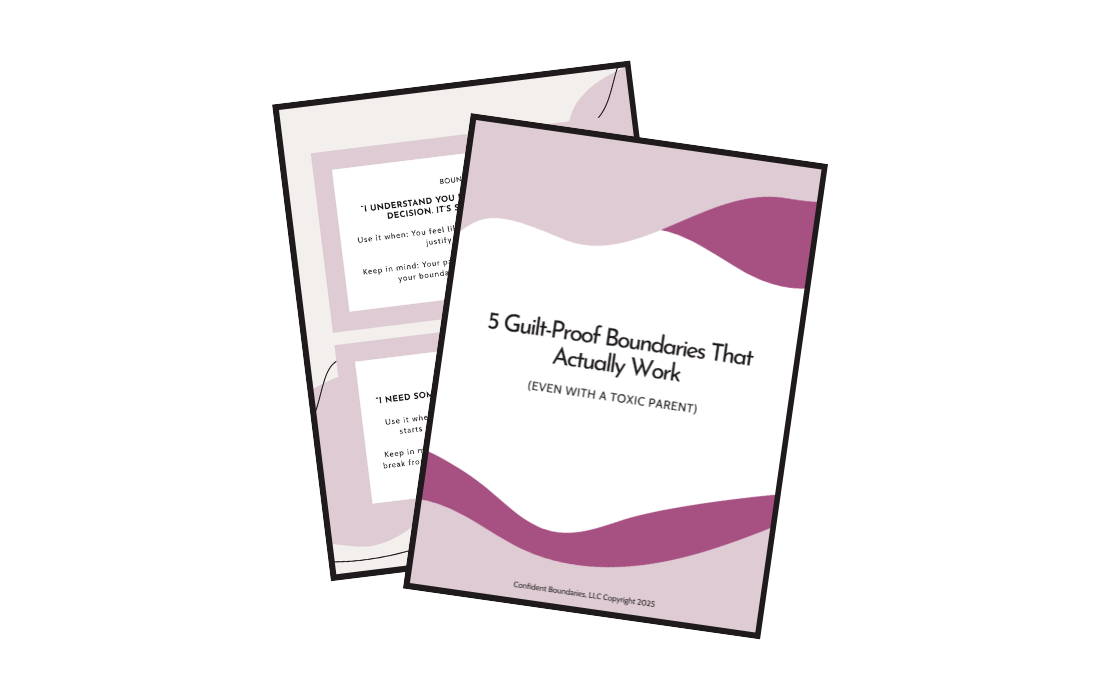
Thinking About Going No Contact With a Toxic Parent? Read This First
Deciding to go no contact with a parent who has borderline or narcissistic personality disorder is one of the hardest and most emotionally complex choices you’ll ever face.
You might be exhausted from setting the same boundaries over and over. Tired of the guilt trips, the unpredictable mood swings, the chaos. Maybe you’ve tried therapy, communication tools, emotional regulation—even begged them to meet you halfway.
And now, you’re wondering:
Would cutting contact finally bring me peace?
Maybe. But before you make that move, there’s a lot you need to consider.
This guide is for anyone navigating the dysfunctional family dynamics of a BPD or NPD parent, and looking for a path forward that prioritizes your safety, well-being, and healing.
First, Let’s Be Honest About What You’re Dealing With
When you're dealing with emotionally immature parents—especially those with traits of borderline or narcissistic personality disorders—your needs have never been the priority. And anytime you’ve tried to set boundaries, chances are they’ve responded with manipulation, rage, or a total shutdown.
So it makes perfect sense if you're now at the point where no contact feels like your only option.
And maybe it is.
But here’s the thing: going no contact isn’t just about making a bold decision—it’s about making a safe one.
Why the “Send a Letter” Strategy Can Backfire (Big Time)
There’s a lot of advice floating around about how to go no contact. One of the most popular? Writing a letter to your parent explaining your decision and cutting off communication all at once.
And while that might sound empowering in theory, it can seriously backfire in practice—especially when you're dealing with a parent who struggles with emotional regulation or has a history of volatile or abusive behavior.
Here’s why:
-
Parents with BPD or NPD often perceive boundaries as abandonment or betrayal
-
They may lash out, retaliate, or spiral into threats of self-harm
-
A dramatic announcement can escalate things and make you feel less safe—not more
So instead of the mic-drop moment, consider something much safer: a phased approach.
The Phased Approach: Slower, Calmer, Safer
Gradually reducing contact over time gives you space to observe how your parent responds and gives them less material to react to.
What this might look like:
-
Taking longer to respond to texts or calls
-
Turning down invitations more frequently
-
Opting out of emotionally charged conversations
-
Slowly reducing your involvement in their life until contact becomes minimal or nonexistent
This approach is often less provocative and gives you more control.
Safety Planning Is Non-Negotiable
Let’s be real: going no contact with toxic parents—especially those with BPD or narcissistic traits—can lead to intense emotional fallout. That’s why safety planning matters so much.
Ask yourself:
-
What usually happens when I say no or set a boundary?
-
Have they ever made threats toward themselves or other people?
-
Could this situation escalate into harassment or danger?
If there’s any history of explosive behavior, stalking, threats, or self-harm, you must plan ahead. These concerns warrant consulting with an expert and creating a safety plan with the help of a trained and licensed therapist.
Don’t Forget the Why Behind Your Decision
Going no contact is not about punishing your parent.
It’s about protecting yourself.
Before you take any steps, ask yourself:
-
Am I trying to make a statement, or am I trying to heal?
-
What outcome do I hope for?
-
How will I know I made the right choice?
The most sustainable decisions come from a grounded, centered place—not from rage, resentment, or emotional collapse. You don’t need to be perfect to go no contact, but you do need to be intentional.
You Don’t Owe Anyone an Explanation
You don’t have to explain your decision to go no-contact with anyone- including your parent. You can reduce contact without writing a letter, making an announcement, or creating a dramatic scene. You are not obligated to explain yourself to someone who consistently disregards your boundaries.
And no, you are not the problem for needing space.
You’re not selfish.
You’re not “too sensitive.”
You’re doing what your parent never did—you’re breaking the cycle.
You Deserve Peace, Even If It Makes Other People Uncomfortable
Dealing with toxic parents means living in constant survival mode. And going no contact is sometimes the only way out. But it’s not something to do impulsively. It’s something to approach with clarity, support, and a solid plan.
Because you deserve a life where:
-
You’re not constantly walking on eggshells
-
Your mental health isn’t held hostage by your parent’s emotional state
-
You can breathe without guilt
Going no contact may feel like a loss—but it can also be the beginning of freedom.
Final Thoughts
If you're surviving a borderline parent or trying to set boundaries with a toxic mom, I want you to know this:
You’re not alone.
You’re not crazy.
And you’re allowed to protect your peace.
Going no contact is a valid choice. Just make sure it’s a safe, well-thought-out, and supported one.
Ready for Tools That Actually Work?
This is exactly why I created the Confident Boundaries Membership—and the $149 Boundaries Workshop that’s helped dozens of cycle breakers like you learn how to stop backtracking, stop panicking, and finally hold the line.
If you’re ready for support that gets it, start here:
-
Watch the Workshop – How to Set Boundaries That Stick (Even With a Toxic Parent)
-
Join the Membership – Tools, coaching, and community built for adult children of toxic parents
-
Download the Free Guide – 5 Boundaries That Actually Work With Toxic Parents
You’re Not Crazy.
But you might have been gaslit by your parents.
Learn how to recognize the signs—and start rebuilding trust in yourself.
I hate SPAM. I will never sell your information, for any reason.



